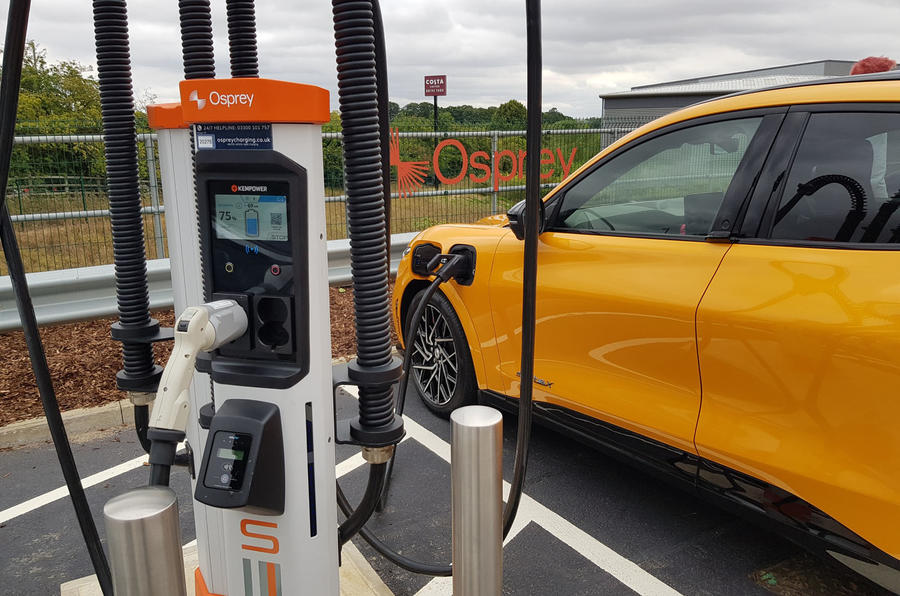It now costs more to run an electric car using public rapid chargers than it does its petrol equivalent, new data has revealed, with charging prices having risen by more than 50% in just eight months.
Yet when approached by Autocar, three of the UK’s biggest electric charging firms say they are setting prices as low as they can, and one campaign group has called on the government to cut VAT on public chargers to help those without access to a home charging port.
RAC data, released today, shows that since May the average price of using a rapid charger – that has a power output up to 50kW – has risen by 58% from 44.55p per kWh to 70.32p. This means charging a family-sized, 64kWh car such as the Hyundai Kona from empty to 80% costs £36, enough to cover around 188 miles.
This is more than the 47% rise seen in the price of using ultra-rapid chargers (power outputs up to 100kW), which has shot up from 50.97p per kWh to 74.49p, resulting in a 0-80% fill-up cost of £38.39.
The RAC data shows that those charging from a slower home charger are paying just £17.87 for the same 188 miles of range.
To compound the numbers, the group’s fuel calculator shows running the 1.0-litre mild-hybrid petrol version of the Kona would also be cheaper than its EV sibling relying solely on public fast chargers. A 188-mile fill-up would, with current forecourt prices set at an average of 155.11p per litre of unleaded petrol, cost £33.
It also reveals that getting the equivalent 484 miles of a fully fuelled 55-litre petrol car – such as the Volkswagen Golf – would cost £9.61 more (£92.69) for a 64kWh EV (which would be over multiple stops, given a battery of that size would only provide a maximum of 245 miles of range, depending on the car and the conditions).
This has prompted national campaign group Faircharge, backed by the RAC, to call on the government to cut VAT on public chargers from 20% to 5%, mirroring the rate that domestic energy users pay. Doing so would see the cost of rapid charging falling by 8.79p per kWh (to 61.53p) and ultra-rapid charging by 9.35p (to 65.44p).
Not doing so would “risk dissuading potential electric car owners from making the switch”, the group added, despite a record number of EV registrations last year (267,203) leaving electric as the second-most-popular powertrain only to petrol (682,473).
“While affordable home charging remains a real incentive for British drivers to go electric, we remain concerned that the small but significant proportion of drivers without access to private parking are doubly disadvantaged by more expensive charging costs and an added tax burden,” said Faircharge founder Quentin Willson.












Join the debate
Add your comment
Business users don't get government discounts as far as I know and have they also have to pay for the reactive power used not just real power like domestic users. So it's already going to be more expensive before some profit is taken.
I've had my electric Corsa for 18 months.
In that time BP have gone from 12p a unit to 57p. Completely destroyed the mathematics of taking the lease.
And that's without any tax - would be well over £1 if tax was aligned to petrol.
I'm getting a 340i next time and keeping it forever.
I am making a real GOOD MONEY ($550 to $750 / hr) online from my laptop. Last month I GOT chek of nearly 85000$, this online work is simple and straightforward, don’t have to go OFFICE, Its home online job. b5 You become independent after joining this JOB. I really thanks to my FRIEND who refer me this SITE…..,
>>>>>>> handsomeincome1.pages.dev